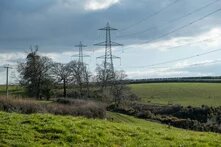Ros Taylor presents a critique of the new law that allows the English police to crack down on protest and seize the vehicles of Roma, Gypsies and Travellers who stop on private ground. The public do not seem to be particularly bothered – though that may change as the scope of the legislation becomes apparent.

‘We don’t need permission to be doing what we’re doing’, declared Extinction Rebellion (XR) on the ninth day of their recent protests in London, boasting of ‘massive disruptions of London Bridge and Tower Bridge, to spectral prams and defiant feed-ins, to a blockade of the UK’s largest milk factory’.
The Metropolitan Police took a different view. XR’s stunts were ‘unfair, unreasonable and unlawful’, said the deputy commissioner. But however unlawful they may be now, by the time the Police, Crime, Sentencing and Courts Bill passes, they will be less likely to be permitted to go ahead in the first place. ‘We might typify [it] as an existential threat to protest’, says David Mead, a professor at the University of East Anglia who specialises in the law of protest and public order.
More than 300 pages long, the bill’s most striking innovation is to give the police the ability to pre-emptively ban a protest on the grounds that the noise it would generate would seriously disrupt an organisation. A protest can also be stopped if it is deemed to have a ‘significant’ and ‘relevant’ impact on people in the vicinity. Since protests, by definition, are intended to be seen and heard, and the noise they generate is hard to anticipate or control, this hands very worrying powers to the police to limit freedom of expression.
Perhaps even more alarmingly, the bill also gives the Home Secretary the power to make new regulations that define the ‘serious disruption’ that enables the police to ban a protest.
These are not the only new limits on protest. Static protests such as vigils (defined as ‘assemblies’) will be treated in the same way as marches and require permission in advance. The bill closes a loophole that enables people to avoid prosecution if they say they were unaware of the conditions that had been imposed on a protest. If they ‘ought to have known’, they can now be convicted.
Within Parliament Square, the police already have the right to shut down amplified noise and stop people putting up tents to sleep in. The new bill expands this area to several nearby roads and will make it an offence to obstruct a vehicle entering or leaving the Houses of Parliament.
Who will take the risk of organising a protest?
These measures are likely to have a profoundly chilling effect. Even if a protest is given permission to go ahead, a protestor will now be expected to have familiarised herself with any restrictions imposed on the event she attends. Police would be able to impose restrictions on the kind of vigils that sprung up after the death of Sarah Everard, who was kidnapped, raped and murdered by a police officer. One of these, which took on some of the characteristics of a rally, was forcibly broken up by police and nine women were arrested on the grounds that they were breaching the COVID regulations in force at the time. The fact that Everard was killed by a police officer was an irony not lost on some observers.
Mead is particularly worried that the bill makes no mention of proportionality. He notes that ‘[l]ike almost all public discourse around protest and activism, it conceives it as an individualised play-off: protester(s) A against business(es) B and bystander(s) C, a bilateral relationship. There is little or no sense of the wider social value of a protest.’
The banning of protest during the pandemic – such as the frequent eleventh-hour changes to lockdown law – have served as a testing ground for the illiberal measures in the Bill. Protest is a right that was, like many others, temporarily removed in order to control COVID. That shift during an Overton window, namely a unique period when certain policies are politically acceptable, seems to have dulled opposition to measures that would, before COVID, have seemed much more draconian.
Expanding the law of trespass
The bill also includes provisions that target Roma, Gypsies and Travellers. In English law, trespass has mostly been a civil offence, but it will now become a crime for someone to stay in a vehicle on land without permission if they have ‘caused, or [are] likely to cause, significant damage, disruption or distress’ and the police will be able to seize the vehicle.
Yet as the Friends, Families & Travellers organisation (FFT) points out, for Travellers, the vehicle is their home: ‘What constitutes “significant damage, disruption or distress” is wildly subjective ... The fact remains that there is widespread hostility and prejudice towards Gypsies and Travellers and many people claim to be distressed by a Traveller camp, which can be based only on presence, not any particular behaviour.’
The government argues that the number of pitches available to Travellers has increased in the past decade and there is no reason for them to stop at other places. The FFT disputes this, saying these are transit rather than permanent pitches and that the overall number has fallen by 8.4%.
The backlash may be yet to come
The Conservatives enjoy a large majority in the House of Commons, which has already approved the bill, and it is likely to pass through Parliament largely unamended. A few ‘Kill the Bill’ protests were, predictably, condemned by the police and Priti Patel, the Home Secretary. Since it hands so much discretion to the police and Patel, and demonstrators may take a cautious approach until they can see how protests are being policed, and it may be a few months before the effects are apparent.
The Good Law Project, a not-for-profit campaign organisation that uses the law to protect the interests of the public, is taking a close interest in the legislation and will probably seek to challenge it in court on the grounds that the restrictions on protests and encampments breach the European Convention on Human Rights. Given the government’s dislike of ‘activist lawyers’ and European law, and the support that this stance enjoys in parts of the press, it might welcome that fight. On the other hand, it may have overestimated how willing protestors will be to let police chiefs define and curtail their right to protest.


